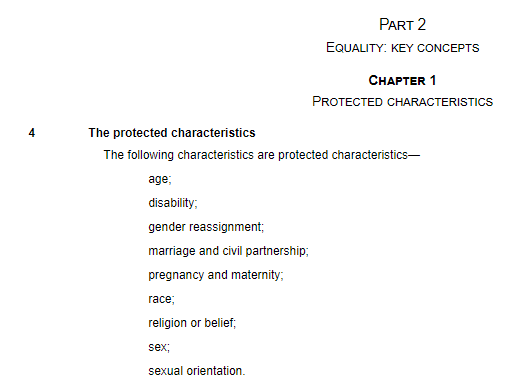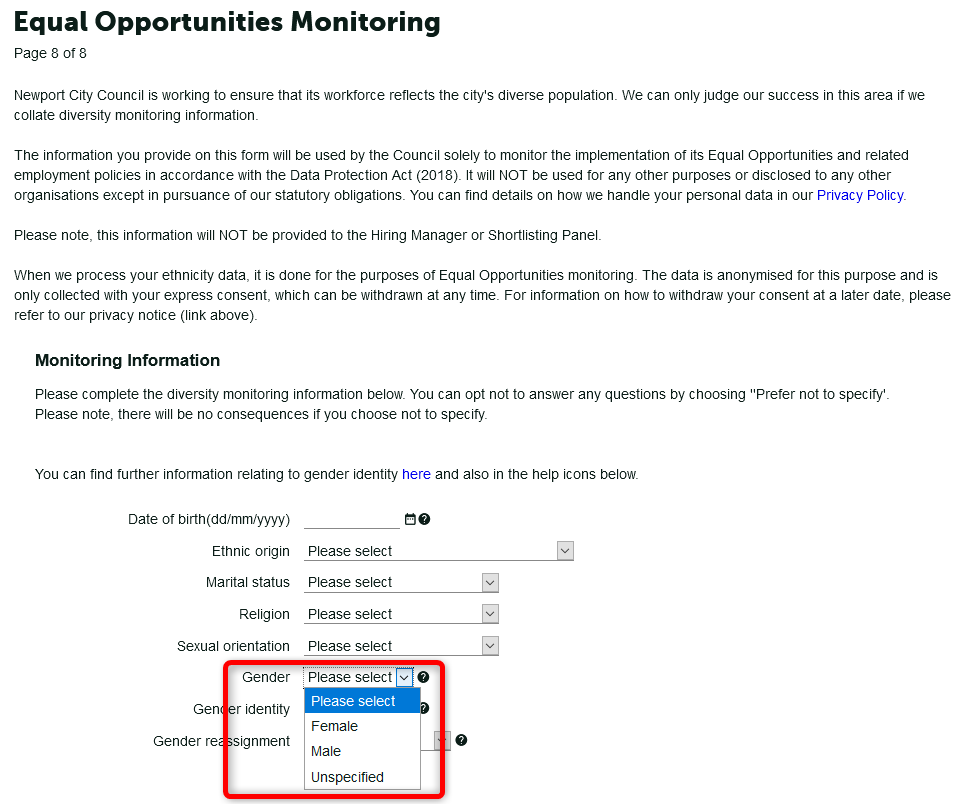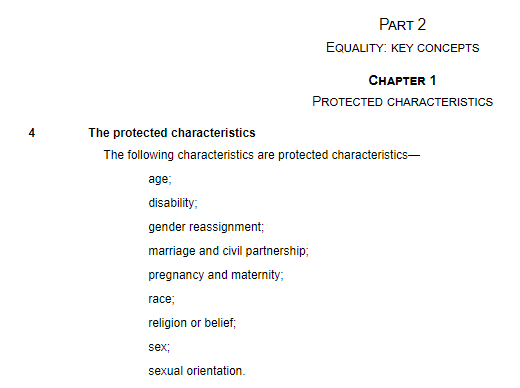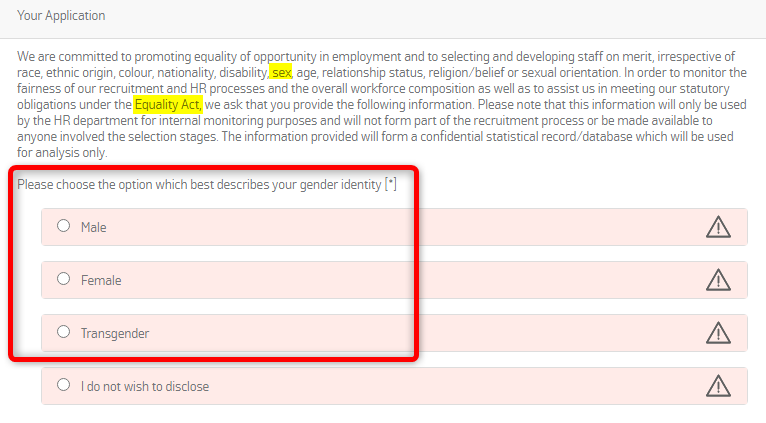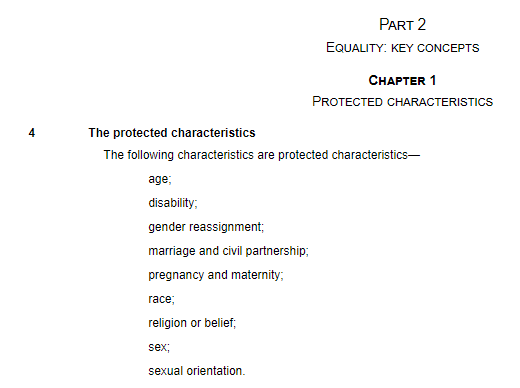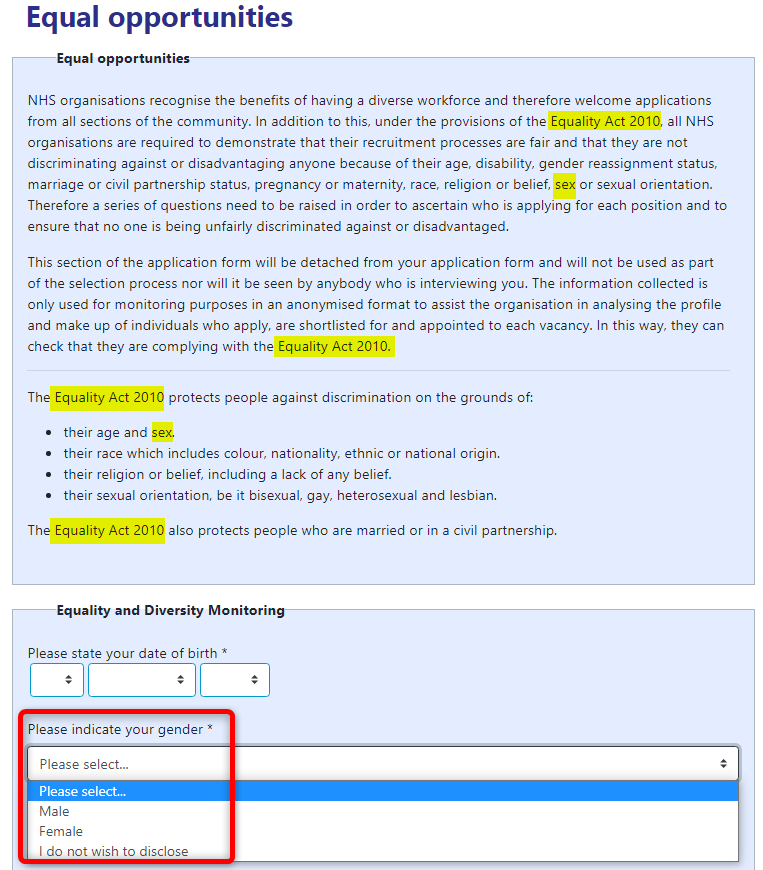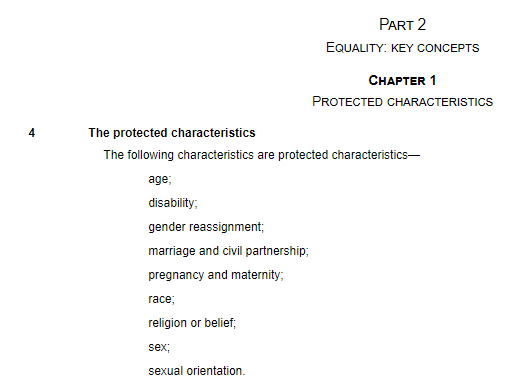
Hi @THTorguk @EHRC @EHRCChair @KishwerFalkner @RJHilsenrath @trussliz @GEOgovuk
The equal opportunities section in your job application asks for the 'gender' of the applicant with options:
Female (including trans female)
Male (including trans male)
Non-binary
Other.
1/12
The equal opportunities section in your job application asks for the 'gender' of the applicant with options:
Female (including trans female)
Male (including trans male)
Non-binary
Other.
1/12
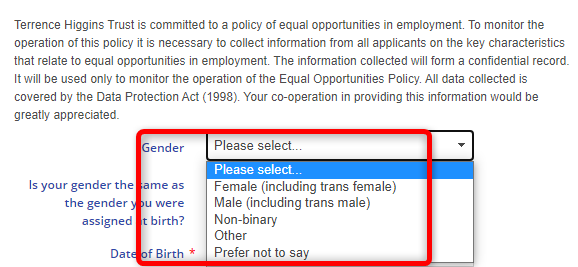
'Gender' is not a protected characteristic under the Equality Act 2010 and is not defined in the Act.
legislation.gov.uk/ukpga/2010/15/…
2/12
legislation.gov.uk/ukpga/2010/15/…
2/12
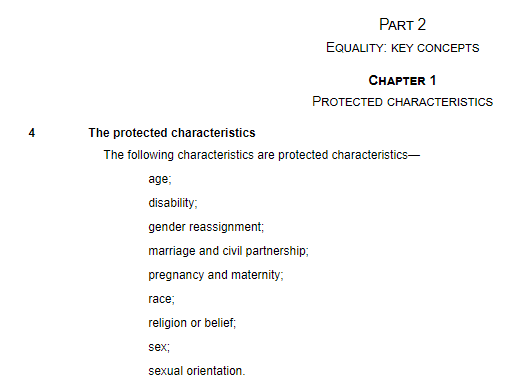
Sex is the protected characteristic and the only two possible options for sex are 'Female' and 'Male' as defined in the Act and consistent with biology, but you don't ask for that. 'Other' is not a valid option.
legislation.gov.uk/ukpga/2010/15/…
'Gender' is not a synonym for sex.
3/12
legislation.gov.uk/ukpga/2010/15/…
'Gender' is not a synonym for sex.
3/12

'trans female', 'trans male' and 'Non-binary' are also not valid options are not used or defined in the Act.
4/12
4/12
You then ask "Is your gender the same as the gender you were assigned at birth?"
'Gender' at birth is a meaningless concept and 'gender' is not 'assigned' at birth: sex is observed and recorded and is immutable.
5/12
'Gender' at birth is a meaningless concept and 'gender' is not 'assigned' at birth: sex is observed and recorded and is immutable.
5/12
'Gender' relies on demeaning, regressive stereotypical notions of societal roles for the two sexes, concepts that I'm sure you would not wish to be associated with.
6/12
6/12
There is a protected characteristic of 'gender reassignment', but the terms you use here are not used or defined in the Act.
legislation.gov.uk/ukpga/2010/15/…
7/12
legislation.gov.uk/ukpga/2010/15/…
7/12

Asking about a personal characteristic such as 'gender' that is not a protected characteristic under the Act, may be in breach of the GDPR by processing personal - and potentially Special Category - data without a lawful basis.
8/12
8/12
If you choose not to gather data on specific protected characteristics (such as sex), you cannot have the information required to ascertain whether or not you could be discriminating on protected characteristics in recruitment. This could be vital in an employment tribunal.
9/12
9/12
If you choose to discriminate on characteristics (such as 'gender') that are not protected characteristics under the Act, you may inadvertently indirectly discriminate on protected grounds.
10/12
10/12
Language and meaning of words are important and proper use & understanding of terms is vital so that the public is aware of what rights they have and what your duties are. Any confusion or inconsistency over meaning may prevent people from accessing their rights in law.
11/12
11/12
Will you undertake to correct these errors and to review all your other policies, documents, reports, etc to ensure compliance?
Please respond.
sexnotgender.info/list
12/12
Please respond.
sexnotgender.info/list
12/12
@threadreaderapp unroll
• • •
Missing some Tweet in this thread? You can try to
force a refresh


